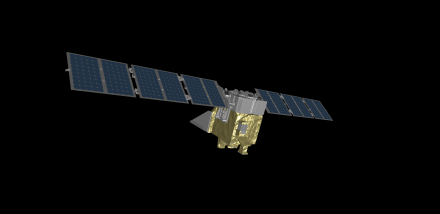(SAN FRANCISCO – November 6, 2019) The government of New Zealand announced it will contribute $16 million to MethaneSAT, a unique non-profit satellite mission created to help speed reduction of potent greenhouse gas emissions. In addition to providing overall project support, New Zealand plans to host the ground-based mission control center and develop an expanded scientific research effort using data from the satellite.
The investment marks New Zealand’s first government foray into space. But the country has a vibrant and growing satellite industry with a deep well of experience and expertise. New Zealand has also been a global leader in both research and policy to fight climate change.
“MethaneSAT was designed to bring together the best scientific and technical knowledge in the public, private and academic sectors to help solve a crucial environmental challenge,” said Dr. Steven Hamburg, MethaneSAT project co-lead. “New Zealand shares our vision and intent. They will be a close and valuable collaborator.”
Methane is a powerful greenhouse gas responsible for at least a quarter of the warming we’re experiencing today. MethaneSAT is designed to locate and measure methane from human sources worldwide, giving companies, public officials and other stakeholders unprecedented new ability to track, quantify, and reduce those emissions. MethaneSAT will publish its data free of charge, so the public can see whether progress is being made.
The agreement was signed by New Zealand’s Ministry of Business, Innovation and Employment,MethaneSAT, and Environmental Defense Fund (EDF), MethaneSAT’s parent organization. MethaneSAT will coordinate decisions on locating the mission control center with appropriate US agencies. The cost to build and launch MethaneSAT is expected to be $88 million, with additional funding for the associated science to follow once it is operational.
“MethaneSAT is a global leadership opportunity for New Zealand,” said Dr. Peter Crabtree, head of the New Zealand Space Agency. “We are investing in a science mission that will directly help to fight climate change, giving Kiwi researchers the opportunity to join a cutting-edge climate science mission that will see them working alongside the world’s best climate scientists and aerospace experts, and building important capability in our rapidly growing space sector.”
Teams from New Zealand, MethaneSAT and EDF have been in discussions over the past year about their shared desire to produce more and better data to help decision makers and the public better identify and measure methane sources in order to speed up emission reductions and provide a robust, transparent measure of progress.
“Oil and gas methane pollution is a major problem, but also a crucial opportunity to slow the rate at which the Earth is warming” said EDF president Fred Krupp. “By contributing toMethaneSAT, New Zealand will help solve one of the world’s most pressing climate challenges quicker and more effectively. We welcome the knowledge, agility and support they bring to the mission.”
The new partnership is the latest in a series of milestones. In September, MethaneSAT announced a contract with Ball Aerospace to design and build the advanced sensing instrument at the heart of a 350kg-class satellite.
Unique Mission
Existing satellites can either map methane emissions across large areas or measure them at predetermined spots. MethaneSAT will do both, with high precision on a global scale. A highly sensitive spectrometer will detect concentrations as low as two parts per billion. High-spatial resolution coupled with a broad, 200-kilometer view path will enable MethaneSAT to quantify even small emission sources over large areas.
To turn a vast stream of data into actionable information, the MethaneSAT team will apply inverse modeling of methane concentration patterns factoring in the effects of winds and other atmospheric conditions in order to determine the location and quantity of both larger point-sources of methane as well as smaller emissions from across larger areas.
The goal of the mission is to facilitate and accelerate efforts by industry, policymakers and other stakeholders to reduce methane emissions. A number of major oil and gas companies have begun to establish methane emission targets, and several countries have either adopted regulations or are in the process of developing them, but together these efforts have only begun to realize the potential positive impacts of reductions on air quality and the climate.
Media Inquiries Contact:
Jon Coifman, (212) 616-1325, jcoifman@methanesat.org
